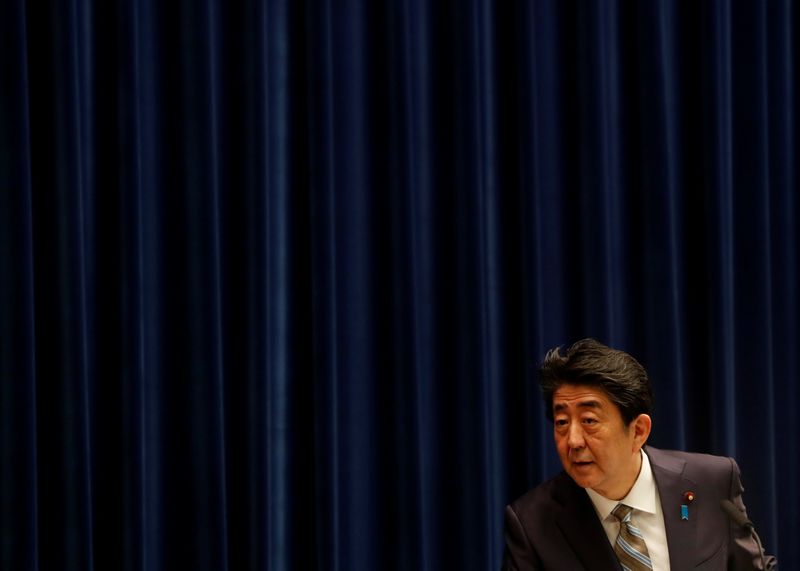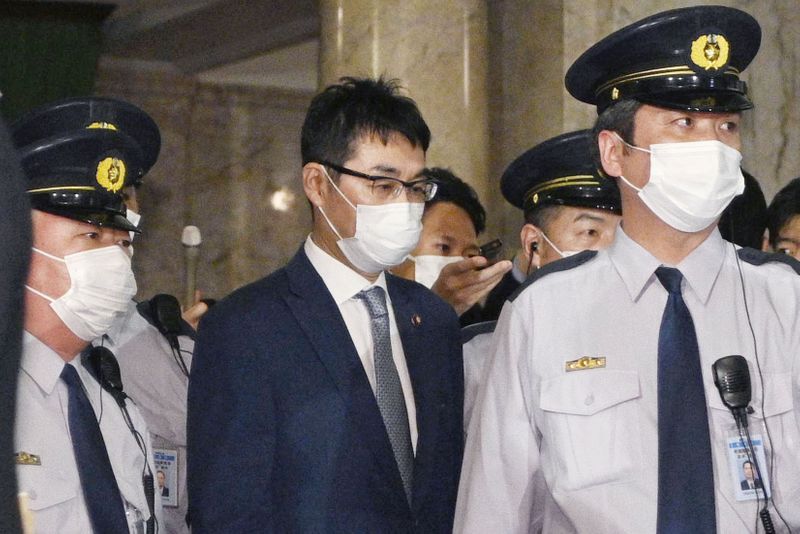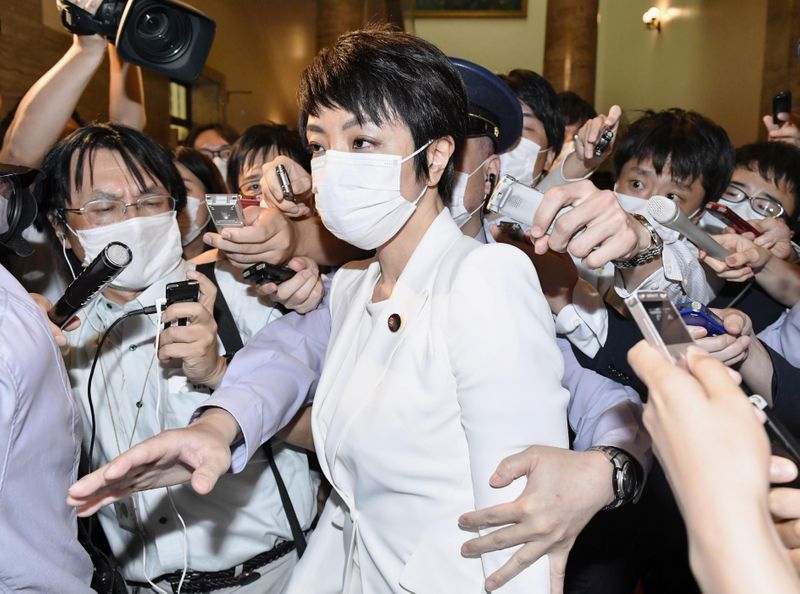TOKYO (Reuters) – The arrest of Prime Minister Shinzo Abe’s former justice minister could be a devastating blow for the Japanese leader whose support is near record lows, raising the possibility of his departure before the end of his term next year.
Some in Abe’s ruling Liberal Democratic Party (LDP) are speaking of an early exit and rivals have stepped up manoeuvring to succeed him, party sources said. While Abe has rebounded from low ratings before, Japan’s longest-ruling prime minister now appears to be losing more internal support.
Prosecutors on Thursday arrested former justice minister Katsuyuki Kawai, a one-time foreign policy adviser close to Abe, and Kawai’s wife, Anri, on suspicion of vote-buying in a 2019 upper-house election.
Tokyo prosecutors said in a statement that the couple paid 1.7 million yen ($15,904) to five people to get her elected. Separately, Katsuyuki Kawai gave a total of about 24 million yen to about 90 people.
At the time, Anri Kawai’s campaign received 150 million yen ($1.4 million) in funds from LDP headquarters. The size of the contribution, although not illegal, raised questions about whether Abe approved it.
Abe has declined to comment on the Kawais, but has said lawmakers had the responsibility to explain their actions.
“Abe cannot last,” said an LDP lawmaker who, like other politicians interviewed, spoke on condition of anonymity.
“He probably cannot last until the year-end.”
The scandal has further eroded the support of voters already frustrated by Abe’s handling of coronavirus stimulus, which has been seen as slow, and out-of-touch. He has also been hit by a backlash over his attempt to raise the retirement age of prosecutors, which was seen as undermining judicial independence.
“Huge amounts of money circulated in the dark,” Noriko Saito, a 65-year-old Tokyo housewife, said about the latest scandal.
“Mr Abe has a heavy responsibility.”
Abe returned to the prime minister’s office in December 2012. His third term as LDP leader, and hence premier, ends in September 2021.
‘NUMBER ON HIS BACK’
Ousting a prime minister is tough and Abe, who quit in 2007 after a troubled first term, may want to avoid a similarly hasty exit this time.
But jockeying by potential successors is heating up.
“Abe has a number on his back and that number is September 2021,” said Jesper Koll, senior adviser at fund manager WisdomTree Investments. “Challengers within the LDP are on the on-ramp and ready to take off.”
Former foreign minister Fumio Kishida, an Abe loyalist plagued by weak public support, set up an intra-party group to create a “vision for a post-coronavirus world” this month, in an apparent effort to raise his profile.
A former defence minister, Shigeru Ishiba, an Abe critic who polls well with voters but has weak support among LDP parliamentarians, has been cultivating ties with powerful LDP Secretary General Toshihiro Nikai.
There is also speculation that Defence Minister Taro Kono is angling for the top job. Even if Abe serves out his term, chances of a substantial rebound that would restore his control over the party appear slim, especially with the economy headed for its worst slump since World War Two.
“Abe’s handling of the coronavirus might be not that bad but he has too many other problems,” said an LDP veteran lawmaker. “Besides, he’s been in power so long that people are fed up.”
Japan has not suffered an explosive coronavirus surge but critics have pointed to a slow early response and delays in much-needed support payments.
WILD CARD
Abe had hoped for a far different year in 2020 – presiding over the Tokyo Olympics, leading his party to an election victory and perhaps even winning a rare fourth term as LDP leader.
That scenario began to unravel in March when the coronavirus forced the postponement of the Games.
His voter ratings fell below 30% in two opinion polls last month – often seen as a danger sign. A June 5-7 survey by the Nikkei business daily showed an 11 point drop to 38%.
He has one wild card: he could call a snap general election to renew his mandate.
Party insiders said that was unlikely but could not be ruled out. He has already led his party to victory in five elections.
“The Abe government won’t last unless he threatens LDP politicians with a snap election,” said a senior LDP official.
Abe’s other strength lies in his rivals’ weakness.
“I’d like to see a change of administration,” said Chisato Tanaka, a 26-year-old translator. “But there’s no one in particular I’d like to see become premier.”
(Additional reporting by Ami Miyazaki; Editing by David Dolan, Robert Birsel)























